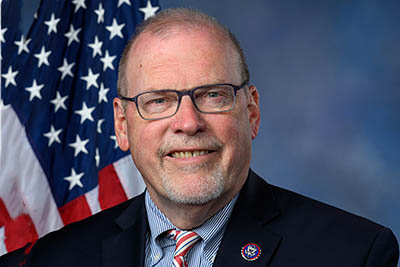The U.S. Supreme Court has decided some notable cases in 2024.
Donald J. Trump v. Anderson was a unanimous decision by the justices to allow President Trump on this year’s ballot, despite efforts from states like Colorado and Maine to remove him.
National Rifle Association v. Vullo arises from a New York state official accused of coercing banks and insurers into cutting ties with the NRA by threatening regulatory action.
The justices voted 9-0 to protect the NRA’s right to free speech and allow the NRA to move forward with their lawsuit against the New York official for First Amendment violations.
Among Supreme Court cases set for decision this summer are Loper Bright Enterprises v. Raimondo and Relentless, Inc. v. Department of Commerce.
Loper and Relentless, Inc. represent commercial fishing groups whose operations encompass the Atlantic herring fishery. The National Oceanic and Atmospheric Administration (NOAA) requires the fishermen to abide by a litany of regulations.
Amongst these regulations are ones requiring the commercial fishermen to alert regulators before they set out to fish. The fishermen’s locations are tracked. Sometimes, the fishermen have to allow a government-mandated federal observer to be present on the boat to collect data and information about their catch!
But wait, there’s more!
NOAA’s budget from Congress did not provide funding for NOAA to do on-the-boat observation of the fishermen’s activities.
So what did NOAA do?
They forced the fishermen to hire third-party monitors and made the fishermen pay the third-party monitors’ salaries!
USA Today states this rule costs the fishermen up to $700 a day. If they do not pay, they are further penalized.
NOAA Fisheries justifies these actions as “necessary and appropriate” for the “conservation and management” of fisheries.
Even though Congress never specifically authorized these actions to be a part of “conservation and management”, the fishermen bear these burdensome requirements because they were upheld under the “Chevron Doctrine” at the appellate level.
This rule comes from Chevron U.S.A., Inc. v. Natural Resources Defense Council, 467 U.S. at 842–43.
The “Chevron Doctrine” states if an agency asserts that it has jurisdiction to take action in order to fulfill its overall purpose, that deference would go to the agency unless a claimant could prove that the action was not a “permissible construction.” This is true if Congressional language is in any way ambiguous.
Apparently a “permissible construction” allows NOAA to force commercial fishermen to pay to have NOAA third-party agents aboard their ships.
The “Chevron Doctrine” at one time even saw the Environmental Protection Agency (EPA) try to claim that trailers for a tractor-trailer were self-propelled motor vehicles, notwithstanding there is no motor. The EPA backed down, but it shows just how far some activists inside agencies will push the boundaries of the “Chevron Doctrine.”
I have long advocated for the 1984 Chevron ruling to be overturned or legislatively eliminated. The original 1984 ruling was an improper shift of authority from Congress to administrative agencies.
When Congress delegates regulatory authority to agencies, it should be clear and authoritative. When the authority is unclear or not specifically granted to an agency, the Courts should rule against the agency. Congress will then either let the Court decision stand or take action to grant the agency specific authority.
In 2016, I was an original cosponsor of H.R. 4768, the Separation of Powers Restoration Act, a bill to restore the balance of power between all three branches of government and codify measures to rein in the executive branch, including a reversal of the Chevron rule. It passed the U.S. House of Representatives in 2016 but no action was taken in the U.S. Senate.
This Congress, I voted for similar legislation, H.R. 288, the Separation of Powers Restoration Act. The legislation passed in the U.S. House of Representatives last year. The U.S. Senate should take up this bill and send it to President Biden’s desk.
Because of Chevron, activist bureaucrats can interpret statutes according to their political agenda, expanding their bureaucracy’s powers without Congressional approval.
The outcome of Loper will have tremendous implications for the American people and our government.
Duke Law Journal estimates that the Supreme Court has cited Chevron 238 times and invoked the rule in over one hundred decisions.
Litigation cases generally cost a small fortune and take years to decide. Even if the Court overturns an agency action, many times companies have already complied with expensive and egregious regulations. These regulations cost consumers.
We will see if the 239th instance where the Court cites Chevron restores balance of power between our branches of government.
If you have questions, concerns, or comments, feel free to contact my office. You can call my Abingdon office at 276-525-1405 or my Christiansburg office at 540-381-5671. To reach my office via email, please visit my website at https://morgangriffith.house.gov.

